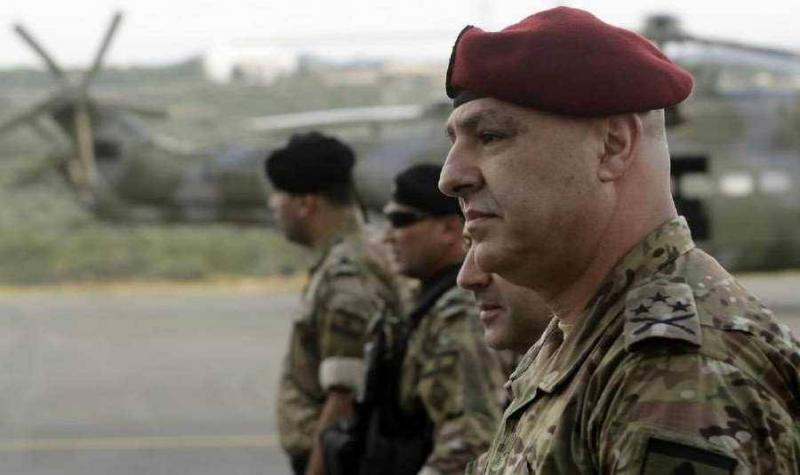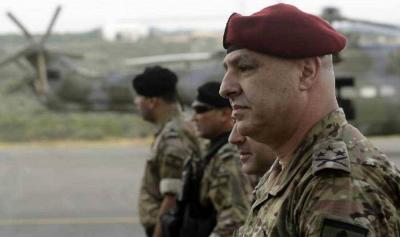Hezbollah has taken several initiatives regarding the presidential elections in recent days, the most significant of which was reopening channels with Bkerke through a visit by a delegation led by the party's political council head, Ibrahim Amin Al-Sayyid, and an appearance by the party's Secretary-General, Hassan Nasrallah, in which he reiterated the demand for a president who does not betray the resistance. While the Hezbollah delegation's visit broke the long-standing rift between the Maronite Patriarchate and the southern suburb of Beirut, there was no sign of any retreat from Bkerke; on the contrary, it seemed that Hezbollah had to take this step. Moreover, party circles mention a prior visit by the media official from Bkerke, Walid Ghiad, to meet with the person responsible for Christian affairs, Mohamed Khansa. This congratulatory visit during the festive season coincides with increased distances between Hezbollah and the Free Patriotic Movement, suggesting that, given its strategic disagreement with the Lebanese Forces, Hezbollah had no choice but to open up to the Maronite Patriarchate to compensate for its weakened relations with the Movement and to maintain at least minimal ties with the Christian faction.
Nasrallah's statement regarding a president who does not betray the resistance and can protect the country from civil war indicates a rejection of the candidacy of the Independent Movement's MP Michel Moawad or similar sovereign and reformist candidates, in favor of supporting the candidacy of Lebanese Forces leader Sleiman Frangieh or similar figures. Currently, the leading candidates in the presidential race are Frangieh and the army commander, General Joseph Aoun. Does this current army commander reassure Nasrallah? It cannot be definitively stated how reassured Hezbollah is by the army commander, as General Aoun avoids political stances and focuses on safeguarding the military institution and ensuring continuity for its officers and soldiers. Over the six years that Joseph Aoun has been in command of the army, there has been no direct confrontation between the army and Hezbollah in either the south or Bekaa; rather, coordination and cooperation have occurred based on the provisions outlined in the ministerial statements regarding the resistance's role. This explains why the truck that fired rockets from the outskirts of the town of Shouya toward the Shebaa Farms was returned to the party without the occupants being detained, and why no clashes occurred in the operations area of Resolution 1701, despite numerous observations regarding the party's performance and its lack of full compliance with the international resolution, as well as its incitement of local residents against "UNIFIL" when its patrols deviated from the general course, while maintaining its military arsenal not apparent in the south despite the presence of the army and international forces.
Hezbollah's main grievances against the army leadership consist of three issues: First, the army's failure to respond to the previous presidency's request, backed by Hezbollah, to suppress protests following October 17, and not immediately fulfilling calls to open key roads. Second, the army's response to a demonstration by the Shiite duo at the gates of Tayouneh and Ain Remmaneh, which resulted in seven deaths and multiple injuries. Third, the American cooperation with the army leadership, which has led Nasrallah to criticize American experts who are at Yarzeh alongside the American ambassador in at least two speeches. While cooperation with Washington is not new, having originated in President Amin Gemayel’s era, it has become more apparent during the current leadership. Notably, army support extends beyond the American administration and includes Qatari, French, Italian, British, and German support.
Unlike the army, Hezbollah does not regard other political parties as capable military opponents, which is why the party avoids confrontation with the army, just as the army avoids confrontation with the party. It is well-known that the army operates under the political authority and cannot afford the costs of any confrontation with an armed Lebanese faction the size of Hezbollah. Previously, the military government's leader and former army commander Michel Aoun clashed with the Lebanese Forces and was defeated, causing significant losses among the Christians. However, he succeeded then through political propaganda in swaying a large segment of public opinion by raising the slogan that presented them with a choice between "the state or the statelet," garnering popular sympathy due to the people's yearning for the state and freedom from militias. This parallels the current dynamics between the army and Hezbollah; most components of the Lebanese populace stand with the army, which embodies the state, and do not align with Hezbollah, which represents the statelet and the militia.
From this perspective, Nasrallah's call for a president who does not betray the resistance indicates that he is seeking a president who will not provide cover for the army to strike Hezbollah. Instead, he desires a president with whom he has influence, like former presidents Michel Aoun or Emile Lahoud, and does not want a president who would dare to challenge him as President Michel Sleiman did, pushing him to agree to a declaration like "the Baabda Declaration" that would require the army to remain neutral in regional conflicts, or to be lured into agreeing on a defense strategy that places Hezbollah's weaponry and decisions of war and peace under the authority of the Lebanese state and its army. Until Nasrallah finds such a reassuring president, the presidential vacancy will continue to dominate the country. Hezbollah believes that time will work in its favor, similar to the experience with President Aoun, expecting that the sovereign, independent, or reformist factions will eventually yield to Frangieh's choice sooner or later. However, if the option of Frangieh is completely excluded and a settlement opens the door for a president who reassures the party and its guarantees, Hezbollah does not currently impose a veto on the army commander in its public stances and does not obstruct his path, as evidenced by the notable visit of the party's liaison and coordination officer, Wafiq Safa, to Yarzeh. Party circles, however, have been keen not to link this visit to the presidential elections but rather to clarify any ambiguities or interpretations given to Nasrallah’s statement regarding its intended audience, particularly the army commander when he stated, "What is required is a president who does not tremble and fear when they shout at him in the American embassy, the American foreign ministry, or the Central American Command."




